Too Little or Too Much Sleep Is Unhealthy
A couple of recent studies have focused attention on sleep. One study linked lack of sleep to mental illness and the other found that sleeping pills actually don’t do much. With a couple of great set up items like that, I thought it made sense to look at sleep and sleeplessness in today’s newsletter. Before we explore some of the details of what happens when you don’t sleep well, we probably should briefly explore what sleep actually is and what it does.
Stages of Sleep
By definition, sleep is a physical resting state in which most external stimuli are blocked from the senses. It is characterized by a general decrease in body temperature, blood pressure, breathing rate, and a number of other bodily functions. Most textbook definitions of sleep also proclaim that it is defined by a mental resting state, but the facts don’t bear that out. There is actually no decrease in brain activity while sleeping. Studies show that the brain is just as active during sleep as it is when awake. The nature of that activity, however, is different.
Sleep is characterized by two different states (REM and non-REM) that alternate throughout the night in a series of four to five 90-110 minute cycles. Each of those cycles can actually be broken down into 5 stages.
Non-REM sleep contains four of those stages.
- Stage 1 — Light sleep, where you drift in and out and can be easily awakened. In this stage the brain transitions from alpha wave (8-13 Hz) to theta wave activity (4-7 Hz).
- Stage 2 — The onset of sleep.
- Stage 3 — The onset of deep sleep, the beginning of delta wave sleep (.5-4 Hz).
- Stage 4 — Deep sleep, the primary delta wave state.
Stage 5 — REM (Rapid Eye Movement) sleep is the state we’re most familiar with as it’s the state associated with dreaming, not to mention a number of sci-fi films (Brainstorm, Dreamscape, etc.). Brain wave activity during REM sleep is virtually identical to that found in the waking state, and it even shares much of the physical activity associated with being awake including fluctuations in breathing, body temperature changes, heart rate, and blood pressure fluctuations. It does have one super cool difference; during REM sleep, your brain blocks signals to your muscles so that they remain immobile. In other words, you get to live your dreams without having to act them out (except in exceptional circumstances such as sleepwalking).
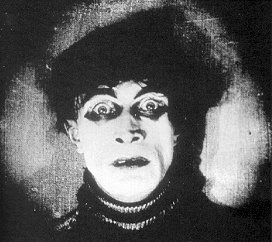
Why Our Bodies Need Sleep
- The circadian (daily) rhythms of our biological clocks lower body temperature and release certain hormones such as melatonin to tell us to sleep — and then raise the temperature and release different hormones such as adrenaline to wake us up in the morning.
- The longer we stay awake the more “sleep debt” we acquire and thus an increasing need to sleep.
- Although our brains do not rest during sleep, they go through a process of collating and organizing the information we have gathered while awake and filing it in long term memory. The longer we go without sleeping, the more unintegrated this new information in our brains becomes until it reaches the point that our brains start insisting that we take a break, go to sleep, and let them process this mass of accumulated information.
- REM sleep also plays a major role in both the development of the brain and in optimizing our mental and emotional states. Depriving the body of REM sleep leads to mental and emotional breakdown.
- Non-REM sleep, particularly delta wave sleep, on the other hand, is vital for the repair and regeneration of the physical body. Depriving the body of non-REM sleep leads to physical breakdown.
How Much Sleep Do We Need For Health?
I always love to talk about how things have changed over the last hundred years — diets, toxins in the environment, levels of stress, etc. Maybe, it’s not so surprising then that even when it comes to sleep, things have changed for the worse. On average, we now sleep 2-3 hours less a night than we did 100 years ago. An exhausting thought! In 1910, the average sleep time was between 8-9 hours a night — which brings up the question: how much sleep do we actually need? For most people, about 7 hours a day — and we’re just not getting it. Note: according to recent studies (which we will explore below), consistently sleeping more than 8 hours a day may be just as harmful as not sleeping enough.
People in their 20’s-50’s, thanks to today’s high stress work environment, average 6 hours of sleep or less a night. As for older people, they just plain sleep less. And it’s not merely a question of total sleep time as we age; the quality of our sleep diminishes too. The problem is that the average percentage of time spent in deep slow wave sleep decreases dramatically as we age. By the time most people are 60, they spend almost no time in delta sleep. They spend most of their time in stage 1 and 2 sleep.
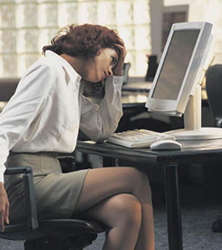 But the biggest change has occurred in the junior high school to college age group. Kids are still getting up at 6 or 7 in the morning to go to school, but are now going to sleep much later — often midnight or later. The net result is that many young people are getting less than 6 hours a night.
But the biggest change has occurred in the junior high school to college age group. Kids are still getting up at 6 or 7 in the morning to go to school, but are now going to sleep much later — often midnight or later. The net result is that many young people are getting less than 6 hours a night.
Many people try and make up for lost sleep by oversleeping on weekends — stockpiling their delta sleep as it were. Unfortunately, this only works for younger adults. The older you get the less ability you have to “store” sleep since you spend less time in delta sleep, the sleep that provides the major restorative function.
What Happens To Our Health When We Don’t Sleep
Lack of sleep affects us in a myriad of ways, both physical and mental. We don’t have time in this newsletter to discuss them all. Instead, we’ll highlight a couple of major studies that give you a sense of the problem.
Lack of Sleep Linked to Mental Illness
At the top of this newsletter, we referred to a study published in the October 23rd issue of Current Biology that found that lack of sleep can be equated to mental illness. Researchers kept volunteers awake for 35 hours and found huge increases in brain activity when shown images designed to make them angry or sad. In effect, brain scans conducted during the study showed that the brain gets “tired and over-emotional” when a person is deprived of sleep. The researchers found that the parts of the brain linked to emotional reactions showed 60% bigger reactions in sleep deprived people when shown “disturbing images” compared to the brains of normally-rested volunteers. As one of the researchers, Matthew Walker, said, “The size of the increase really surprised us. It is almost as though, without sleep, the brain reverts back to a more primitive pattern of activity, becoming unable to put emotional experiences into context and produce controlled, appropriate responses.”
Walker went on to say, “While there have been a lot of studies into the effects of sleep deprivation, this is the first to show what is happening in the brain in response to these emotional stimuli.”
Lack of Sleep Linked To Diabetes and Obesity
Studies have shown that even short term sleep deprivation can lower glucose tolerance and raise cortisol levels. Prolonged lack of sleep puts the body under a state of 24/7 stress which causes it to continuously pump cortisol into the bloodstream, which causes the body to increase its glucose levels in response to the perceived stress. The increased glucose levels then trigger the body to pump out ever increasing amounts of insulin in an attempt to lower the glucose level. Over time, this leads to insulin resistance and, ultimately, diabetes. As a consequence, other studies have shown that sleep deprivation not only increases your likelihood of getting type 2 diabetes, but also your likelihood of getting the more severe forms of diabetes.
Considering that lack of sleep is connected with lowered glucose tolerance and increased insulin levels which cause the body to store fat, it should not be surprising that yet other studies have found that lack of sleep is conducive to obesity ( 1, 2, 3, 4).
Lack of Sleep Makes Us Age Faster
Chronic lack of sleep can also accelerate the aging process. When you don’t get enough sleep, key hormone levels drop precipitously (cortisol levels aside), producing hormone levels similar to those of a much older person. Key hormones affected include growth hormone and melatonin. However, subsequently getting a full night of sleep reverses this aging effect, returning hormone levels to normal. A University of Chicago study published in Lancet in October 1999 found that the metabolic and endocrine changes resulting from a significant sleep debt mimic many of the hallmarks of aging. Chronic sleep loss reduces the capacity of even young adults to perform basic metabolic functions such as processing and storing carbohydrates or regulating hormone secretion — changes that resembled the effects of advanced age or the early stages of diabetes — but after less than just one week.
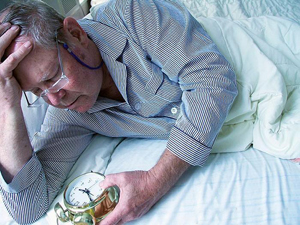
Chronic Lack of Sleep and Mortality
The chronic release of stress hormones caused by sleep deprivation affects your immune system, making you more susceptible to colds and infections. Also, because your immune system helps your body fight cancer, reduced immune system function from insufficient sleep can put you at increased risk of developing cancer. A study published last year in the Archives of Internal Medicine showed that even a modest loss of sleep for a single night increases inflammation, which is a key factor in the onset of cardiovascular disease and autoimmune disorders such as rheumatoid arthritis. In fact, researchers from the University of Warwick, and University College London, presented evidence just a couple of months ago at the British Sleep Society that lack of sleep can more than double your risk of death from cardiovascular disease. They also found that people who increased their sleep time by just one hour a night (from 7 to 8 hours) were also more than twice as likely to die, but from non-cardiovascular diseases, as those who did not change their sleep pattern. Again, too little sleep bad; too much sleep bad. It’s also worth noting that as many as 90 percent of people diagnosed with depression also have some sort of sleep disorder resulting in either not enough or too much sleep. Why would too much sleep be harmful? At the moment, any answer is theoretical, but a likely theory is that sleeping too much quite simply messes up your biological rhythms. Remember, many of your biological functions, including sleep, are governed by a preset biological clock set to a 24 hour day (the circadian rhythm). Sleep too much or too little and you throw that clock out of whack for every single biological function it needs to perform that day. That’s potentially a huge disruption.
How To Naturally Get Better Sleep
Talk to your doctor and she’s likely to prescribe a sleeping pill. As the ads on television say, “Your dreams miss you.” But as it turns out, a new study from Oregon State University and the National Institutes of Health shows that sleeping pills don’t really do very much. For an average of about $3.50 a pill, you fall asleep on average about 12.8 minutes faster than with a placebo — and get about 11.4 minutes more sleep (again, on average) in total than the placebo group. That’s it, and yet consumers in America alone spend upwards of $4.5 billion dollars a year on these same sleep medications prescribed by their doctors. You truly have to love it when the medical community states that it wants to protect consumers from wasting their money on dietary supplements and alternative health treatments. I guess it all depends on what you mean by waste — or perhaps, more importantly, on who’s receiving the money.
Are There Natural Sleep Alternatives?
In fact, sleeplessness is usually associated with emotional or mental turmoil (often work, financial, or relationship connected) and physical tension in the body (particularly the back and shoulders). In addition, any major pain or discomfort will affect your ability to sleep — and also any low grade pain or discomfort that you may not even be consciously aware of. In addition, diet can play a major role. Things such as too many stimulants like coffee during the day, or too much alcohol, or just too much food can all affect your ability to sleep and/or the quality of that sleep. So with that in mind:
 Avoid alcoholic drinks in the late evening. Although alcohol can help you fall asleep faster, it prevents you from entering stage 3 and 4 sleep. In other words, you may get enough hours of sleep, but it won’t feel like it.
Avoid alcoholic drinks in the late evening. Although alcohol can help you fall asleep faster, it prevents you from entering stage 3 and 4 sleep. In other words, you may get enough hours of sleep, but it won’t feel like it.- Cut back on coffee, tea, and other sources of caffeine. The half life of caffeine is about 6 hours. In other words, it takes about 6 hours for half its impact on the body to clear. Obviously, any caffeine you have in the evening will have a notable impact on your ability to sleep that night.
- Don’t eat a large, late evening meal before going to bed. You may be able to fall asleep, but again as with alcohol, it will limit your ability to enter delta sleep. Even more important, though, is that it is physically exhausting trying to digest large meals while sleeping. If you do try and do so, you are likely to find yourself waking up in the middle of the night sweating profusely, breathing heavily, and feeling that alien creatures are beating you up from the inside out. The net result is that you are more than likely to feel exhausted in the morning.
- If your mind is too active to fall asleep, try meditating or walking to quiet the mind. Even standing barefoot in the grass or dirt for just five minutes can do an amazing job in discharging tension from the mind. (This works much better on a warm summer evening as opposed to standing in a snowdrift in the middle of winter.)
- If you’re exhausted during the day, you can take a 20 minute power nap; but otherwise, avoid napping during the day as it can interfere with your normal sleep pattern.
How To Reduce Physical Aches For Better Sleep
It is also imperative that you address any physical aches, pains, or discomforts, no matter how minor they might be, that could be interfering with your ability to sleep.
- Find a mattress that works for you. Most people use counterproductive sleeping surfaces — mattresses that are either too hard or that don’t provide enough support. If you find yourself waking up stiff or with back pain, you need a new sleeping surface. If you have the money, try out a memory foam mattress or one of the new adjustable air mattress beds. For less money, you can just use a feather top mattress pad on a firm-mattress bed. The bottom line is that if you wake up stiff, achy, exhausted, or numb in any part of your body, you probably need to rethink your current sleep system.
- Do some form of vigorous exercise during the day, but gently stretch at night. Or get a massage. If having a regular masseuse is not in the cards for you, pick up a handheld mechanical massage device such as a thumper type personal massage unit. And if money really is no object, check out some of the newer computer operated massage chairs.
- If not a massage, try taking a hot bath or shower in the evening. If you’ve got the money and can afford it, a home far infrared sauna can help.
- Apply natural pain relief rubs or oils on areas that need special attention such as the low back or achy muscles. If back pain is keeping you up at night, be sure to read our articles on how to naturally reduce back pain.
Natural Supplements That Can Help You Sleep
- Many people find that regular use of a good proteolytic enzyme supplement can help make little aches and pains go away, thus facilitating sleep.
 100-200 mg of L-theanine at night can significantly reduce stress and facilitate sleep.
100-200 mg of L-theanine at night can significantly reduce stress and facilitate sleep.- Ashwaganda can also help promote sleep. Dosage depends on the brand you use and the concentration of its bioactives.
- Magnesium supplements can help. Keep in mind that calcium excites nerves whereas magnesium calms them down. Calcium makes muscles contract; magnesium helps them relax. Instead of a cal/mag supplement, think of taking a mag/cal supplement where the magnesium is dominant. The best form of supplement for this purpose is powdered so that it mixes with warm water and can be rapidly taken up by the body.
- Melatonin can also help. Dosage varies according to what your body needs, ranging from 0.3 mg to 20 mg a day. The correct dosage is the one that helps you sleep but let’s you wake up without feeling “drugged.” Start with 0.5 mg and increase by 0.5 mg a night until you find what works for you. Note that the effects of supplementation often carry over several nights, so you may need to supplement only every other night or every third night. As you get older, you can increase the amount and frequency of supplementation as needed.
- Certain herbs can help. Valerian, chamomile, kava kava, St John’s wort, lavender, passionflower, hops and skullcap are possible choices.
Everything listed above is non habit forming, nontoxic, and most importantly, does not have unusual side effects such as sleepwalking, sleep eating, sleep driving, sleep conversations, sleep shoplifting, and even sleep sex (or so some people have claimed).
One final note: there are a couple of special situations that can affect sleep. Check out my blog entries below if they apply to you.

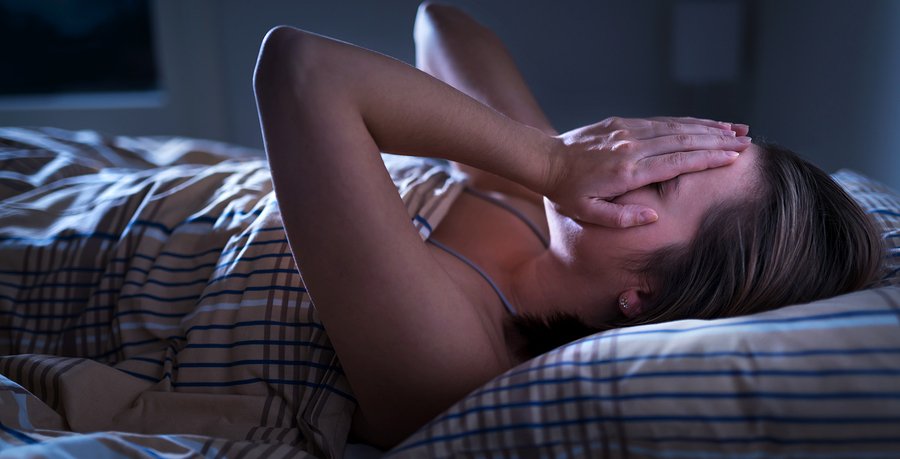



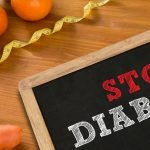
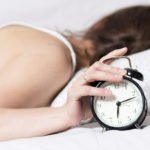

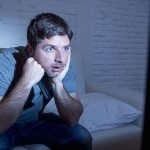



A couple of years ago I
A couple of years ago I decided to see a sleep specalist MD.
Boy, did he want to order prescriptions!!!
I wound up getting a sample of Lunesta and refusing anything else.
What a disaster that was. I quit taking it after about 10 days since I was feeling worse and worse over time.
Whenever your doctor orders any drug, please check out it’s side effects before deciding to fill the prescription no matter what it is.
This is especially true of any of the statin drugs that are being prescribed like candy today.